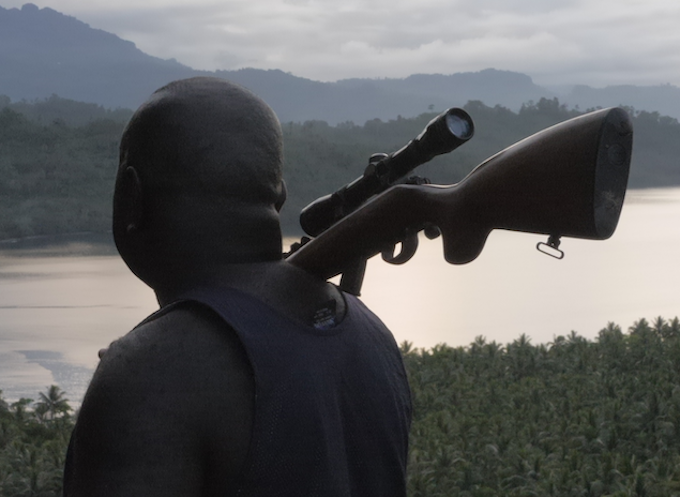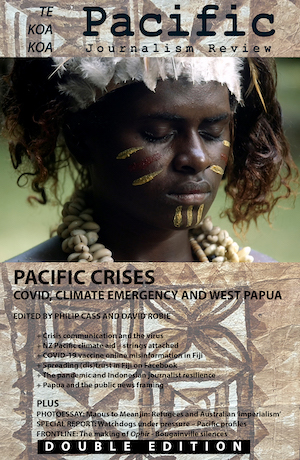
A Frontline investigative journalism article on the politics behind the decade-long Bougainville war leading up to the overwhelming vote for independence is among articles in the latest Pacific Journalism Review.
The report, by investigative journalist and former academic Professor Wendy Bacon and Nicole Gooch, poses questions about the “silence” in Australia over the controversial Bougainville documentary Ophir that has won several international film awards in other countries.
Published this week, the journal also features a ground-breaking research special report by academics Shailendra Singh and Folker Hanusch on the current state of journalism across the Pacific – the first such region-wide study in almost three decades.

Griffith University’s journalism coordinator Kasun Ubayasiri has produced a stunning photo essay, “Manus to Meanjin”, critiquing Australian “imperialist” policies and the plight of refugees in the Pacific.
The main theme of the double edition focuses on a series of articles and commentaries about the major “Pacific crises” — covid-19, climate emergency (including New Zealand aid) and West Papua.
Unthemed topics include journalism and democracy, the journalists’ global digital toolbox, cellphones and Pacific communication, a PNG local community mediascape, and hate speech in Indonesia.
This is the first edition of PJR published since it became independent of AUT University last year after previously being published at the University of Papua New Guinea – where it was launched in 1994 – and the University of the South Pacific.
Lockdowns challenge
“Publishing our current double edition in the face of continued covid-driven lockdowns and restrictions around the world has not been easy, but we made it,” says editor Dr Philip Cass.
“From films to photoessays, from digital democracy to dingoes and disease, the multi-disciplinary, multi-national diversity of our coverage remains a strength in an age when too many journals look the same and have the same type of content.”
“We promise this journal will have a strong focus on Asian media, communication and journalism, as well as our normal focus on the Pacific.”
Founding editor Dr David Robie is quoted in the editorial as saying the journal is at a “critical crossroads for the future” and he contrasts PJR with the “oppressively bland” nature of many journalism publications.
“I believe we have a distinctively different sort of journalism and communication research journal – eclectic and refreshing,” he said.
The next edition of PJR will be linked to the “Change, Adaptation and Culture: Media and Communication in Pandemic Times” online conference of the Asian Congress for Media and Communication (ACMC) being hosted at AUT on November 25-27.
- Pacific Crises: Covid, climate emergency and West Papua, Pacific Journalism Review, edited by Philip Cass and David Robie, September 2021













































David how do I get a copy of this PJR?
Bula Jone,
Order online at AUT Shop: https://www.autshop.ac.nz/pacific-media-centre/?sort=newest
New order for this edition wilL be there in the next day or two.
Vinaka. David
The direct link is now available: https://www.autshop.ac.nz/pacific-journalism-review-no-27-1-2/
Comments are closed.